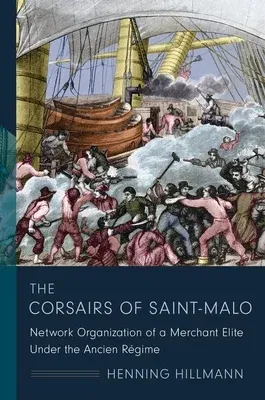Western Europe rose in global power during the early modern period as
overseas expansion opened new trade routes. At the same time, intense
rivalries pitted European states against one another in recurrent wars.
Henning Hillmann examines the merchant community of Saint-Malo,
Brittany, a key port in the French Atlantic economy, to shed light on
the local networks that linked commerce and conflict in early modern
Europe.
Hillmann traces the development of Saint-Malo and the social structure
of its merchant elite from the 1680s through the onset of the French
Revolution. He pinpoints the role of privateering, showing how it
enabled local merchant communities to secure their hold on established
trades, seize new opportunities, and withstand the threats of armed
conflict. In wartime, rulers commissioned ship-owning traders to fit out
vessels as corsairs to raid enemy shipping. Within a mercantilist
worldview, this state-sanctioned private war at sea aligned the
interests of local elites and the royal government. Locally, within
Saint-Malo, the partnerships that merchant elites formed in their
privateering ventures gave rise to a cohesive network that held their
community together amid outside conflicts. Combining rich descriptions
of privateering campaigns with quantitative network analysis of
partnership ties over more than a century, The Corsairs of Saint-Malo
offers a new understanding of the local organizational foundations of
early modern capitalist development.

